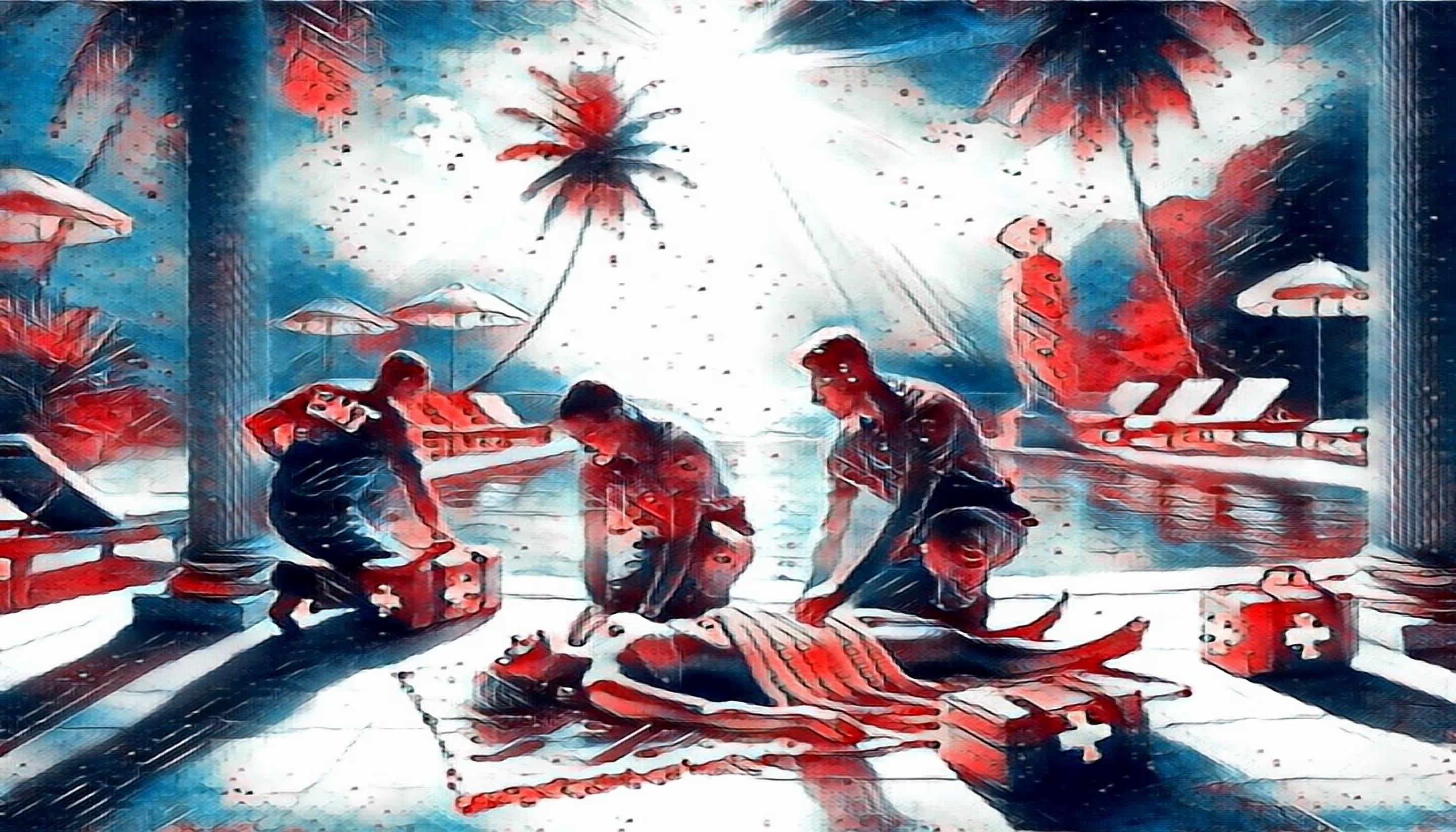1. Seek Medical Attention Immediately
Your health and safety should be your top priority. Even if your injuries initially seem minor, seek medical attention immediately. Some injuries, like concussions or internal injuries, may not present obvious symptoms immediately but can lead to serious complications if untreated.
Make sure to keep all documentation from your medical visit, including:
- Medical reports
- Hospital bills
- Prescription receipts
These documents will be vital if you file a personal injury claim.
2. Report the Incident
If your injury occurred in a public place, a hotel, or during an activity like a guided tour, you should report the incident to the relevant party. For example:
- If you're injured in a hotel or vacation rental, report the injury to the management immediately and ask for a written report.
- If the injury happened during an organized activity or tour, notify the company responsible and again ask for a report.
- If you're involved in a car accident, contact local authorities and ensure a police report is filed.
Having official incident documentation strengthens any potential legal claims you may wish to pursue later.
3. Document the Scene and Your Injuries
Gather as much evidence as you can immediately following the accident. This includes:
- Taking photos or videos of the accident scene
- Documenting the conditions that led to your injury (e.g., wet floors, broken stairs, faulty equipment)
- Photographing your injuries and any visible damage to your personal property
If there are any witnesses, try to obtain their contact information. Eyewitness testimony can be valuable in proving the facts of your case, wildly if liability is disputed.
4. Understand California's Laws Regarding Personal Injury Claims
When you're injured in California, you'll be dealing with the state's personal injury laws, regardless of where you reside. Here are a few key points to be aware of:
- Statute of Limitations: California law generally gives you two years from the date of the injury to file a personal injury lawsuit. However, if your injury resulted from negligence by a government entity, such as in a public park or on a state road, you may have only six months to file a claim.
- Comparative Fault: California follows a comparative fault system, meaning that if you're partially responsible for your injury, the compensation you receive could be reduced by the percentage of your fault. For instance, if you are found to be 20% responsible for your injury, your damages award may be reduced by 20%.
Understanding how these legal frameworks may impact your case is critical to ensuring you take the appropriate steps toward a potential claim.
5. Notify Your Insurance Company
If your injury occurred in a car accident, notify your auto insurance company immediately. You may have medical expenses and property damage coverage even if you're at fault. Additionally, if you have travel insurance, check whether your policy covers personal injury claims or medical bills incurred while on vacation. Travel insurance can often compensate for medical evacuation, hospital stays, and even lost wages due to an injury.
6. Speak With a Personal Injury Attorney
Navigating California's legal system while injured and away from home can be daunting. Consulting with a local personal injury attorney is one of the most important steps you can take to protect your rights. An attorney will:
- Help you understand whether you have a viable personal injury claim.
- Handle communications with insurance companies, hotels, tour operators, or other involved parties.
- Represent your interests if you file a lawsuit, ensuring you get the compensation you deserve for medical expenses, lost wages, and pain and suffering.
An experienced attorney can help simplify the legal process and ensure that opposing parties don't take advantage of you.
7. Compensation You May Be Entitled To
If you've been injured due to someone else's negligence while vacationing in California, you may be entitled to compensation for:
- Medical Expenses: Reimbursement for any medical bills related to your injury, including future medical costs.
- Lost Wages: Compensation for time off work, even remotely, or for future lost earning capacity if your injury affects your ability to work long-term.
- Pain and Suffering: Non-economic damages for the physical and emotional trauma you've endured due to the injury.
- Property Damage: This is reimbursement for personal property damaged in the incident, such as a phone, camera, or vehicle.
Your attorney will help calculate the appropriate compensation based on your case specifics, ensuring you pursue a fair settlement.
8. Consider Filing a Lawsuit in California
If your injuries are significant and there is clear evidence of negligence, filing a lawsuit may be necessary to recover compensation. An attorney familiar with California's personal injury laws can guide you through filing a lawsuit, gathering evidence, and representing you in court if needed.
Remember that many personal injury claims are resolved through settlement negotiations without a full trial. A knowledgeable lawyer will strive to settle your case efficiently and be prepared to take it to court if a satisfactory settlement isn't reached.
Protect Your Rights with KAASS Law
If you've been injured while on vacation in California; you don't have to navigate the complexities of personal injury law alone. At KAASS Law, our dedicated team of personal injury attorneys is ready to help you recover the compensation you deserve. Contact us today for a free consultation, and let us handle the legal details while you focus on healing. Call or visit our website to start your recovery with a trusted California personal injury law firm.
